When do babies say “Mama!”?
When do babies usually say “Mama” and mean it?
Babies will usually start to say true words between 10 and 14 months. Once your child says their first word, it will likely be followed soon by “Mama.”
Will my baby’s first word be “Mama?”
It is possible that their first word will be “mama.” But to the disappointment of many mamas, it might not be. Babies are more likely to say words that they hear all the time. If a baby hears their caregiver labeling a specific thing all day long, it is more likely that this will be their first word. In homes where the baby spends most of their day with their mother, chances are their mom will be talking a lot about other things in the home, such as Dada, dog, kitty, water, ball, or car. It is unnatural and awkward to talk about yourself in the third person, and therefore babies are less likely to hear a mom talk about Mama.
But babies are likely to babble “Mama” early on. There is a reason why words for mom and dad are so similar across languages around the world: they are easy to say and easy to babble. So although it might take longer for a baby to mean “Mama,” they might still say it very early.
Can a baby say mama at 6 months?
Yes and no. Technically, a baby can say “mama” because this is the age when they will likely start babbling. “Ma” is one of the easiest syllables to make in the mouth and a young baby may say it often. However, a baby won’t say “Mama” and mean “Mama” until 10 months old at the earliest.
How do I know if my baby is saying, “Mama” or just babbling?
It can be frustrating to hear a baby babbling something that sounds like “mama” but not feel confident that they mean mama. Babies will start to babble around 6 months of age, and this includes repeating the syllable “ma.” A 6-month-old doesn’t mean “mama” yet, they are simply practicing sounds. To tell if your baby actually means “mama,” here are some tips to tell if something is a true word or not:
The child is old enough for true words. A first word typically comes at around a year, but could be anywhere from 10-14 months. A child younger than that will still be babbling.
The child has to say the word while the thing they are talking about is present. For example, if they babble “dadadada” but Dada isn’t home, it is less likely that they mean “Dada.” But if Dada walks in the room and they child says “Dada!” then it is more likely they meant their dad.
The child has to say the word the same way each time. Saying “mamamamama” and then saying “ma” are examples of saying it differently.
The child has to say the word three different times in context before speech therapists “count” it as a true word.
How can I encourage my baby to say “Mama”?
Once your baby is using true words, it is only a matter of time before they say “Mama” and mean it. Keep your environment language-rich (click here for some tips on helping your child talk.) To help your talking baby start to use “Mama,” here are some things you can try:
Make sure the child hears the word “Mama” a lot when their mama is around so that they know that is her name. They won’t start to say it if they don’t know what it means!
Have another person present using the word “Mama.” They can say it to get her attention, say it when they hand her stuff, or say it when she walks in the room.
Family pictures are great for helping a child learn names of people. You can show your child pictures of Mama while pointing to her and saying “Mama.” In the same activity you can also show pictures of the child, siblings, pets, or other important people so they hear that they all have different names.
When taking turns in an activity, say whose turn it is by using their name. When Mama throws the ball, she can say “Mama’s turn!” When the child throws the ball she can say, “Malakai’s turn!”
You can use family member names (including Mama) when putting possessions away, like shoes. You can say “Mama! Mama’s shoes!” and hold up her shoes, then hold up the child’s shoes and say “Audrey’s shoes!”
When should I worry about my baby not saying mama?
There are several reasons why a child might not be saying “Mama.” Give it some more time and try the tips and tricks we mentioned above if:
Your child is not old enough to say words yet
OR Your child is saying other true words but just hasn’t said Mama yet
AND Your child is less than 18 months old
If your child isn’t saying Mama yet, you should consider a referral to a speech therapist if:
Your child is 16 months or older and doesn’t say any true words
OR Your child is 10 months or older and hasn’t babbled
OR Your child is talking but not using their lips to make M, B, or P sounds
OR Your talking child is 18 months or older and doesn’t have names for any people
Here are a few more questions parents frequently ask:
-
Yes, it is very normal for babies to say Dada first!
This happens commonly in situations where the child’s primary caregiver is not Dada, but rather someone else who talks about Dada a lot. This does not mean that a baby thinks Dada is more important, but simply there might be more contexts to say it.
If a baby is with Mama all day, there will be less natural chances to show the baby how to greet Mama, say goodbye to Mama, get Mama’s attention, etc. Many families have the humorous experience of the baby saying the dog’s name before “Mama” simply because they hear their caregiver say it all day. It will likely just take a little bit more time (and a little bit of swallowing your pride) before you get to hear your child say “Mama.”
-
In addition to hearing about Dada more, it might also just be easier for your child to say the D sound than the M sound. It is perfectly normal for a child to have a preference.
If you notice that most of your child’s words start with a D, you can always try to have them copy the M sound in a fun natural interaction. You can say “mmmm” as a car sound, or “mmm!” when eating and see if your child will copy you. If they can make the M sound, then give it a little more time for “Mama” to come.
So, to recap…
When do babies start saying Mama?
Around the time they say their first words.
Written By: Stephanie Burgener-Vader, MA CCC-SLP
More from the blog:
© 2020-2025. Stephanie Keffer Hatleli, MS CCC-SLP. All Rights Reserved.
The content offered on ToddlerTalk.com is for informational purposes only. Toddler Talk is not engaged in rendering professional advice, whether medical or otherwise, to individual users or their children or families. No content on this site, regardless of date, should ever be used as a substitute for direct medical advice from your doctor, speech language pathologist, or other health professional. By accessing the content on ToddlerTalk.com, you acknowledge and agree that you are accepting the responsibility for your child’s health and well-being. In return for providing you with information related to home speech and language practice, you waive any claims that you or your child may have as a result of utilizing the content on ToddlerTalk.com.


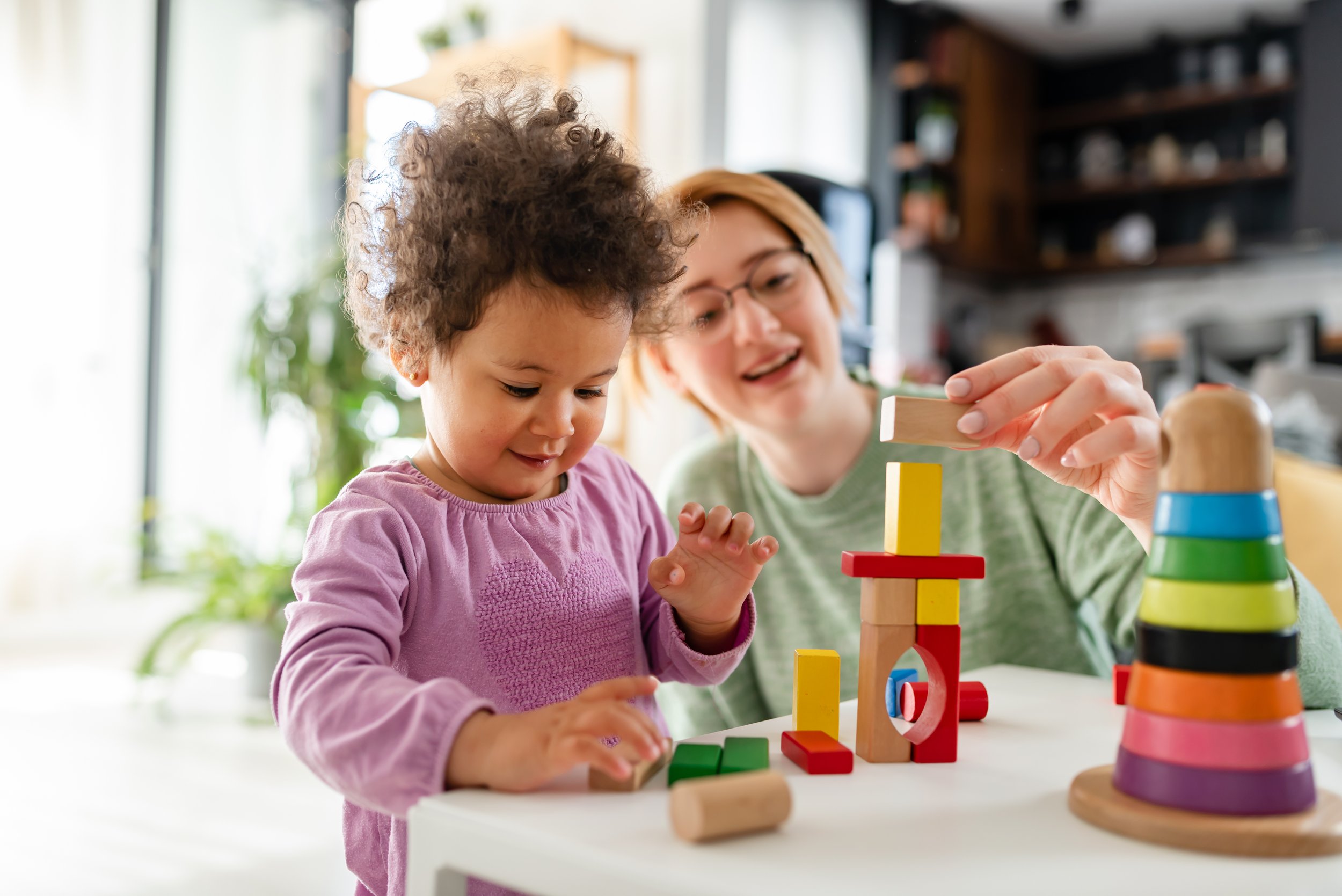
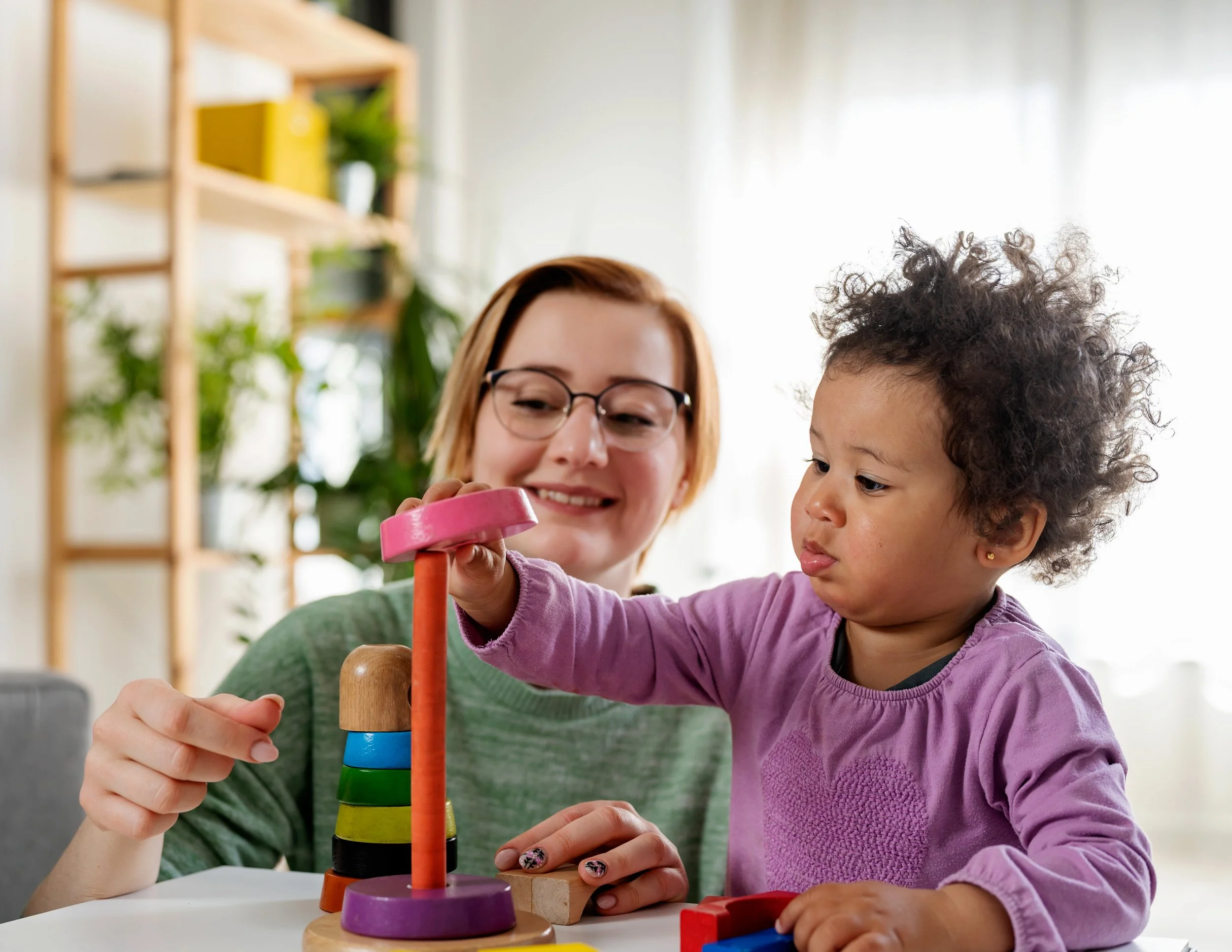

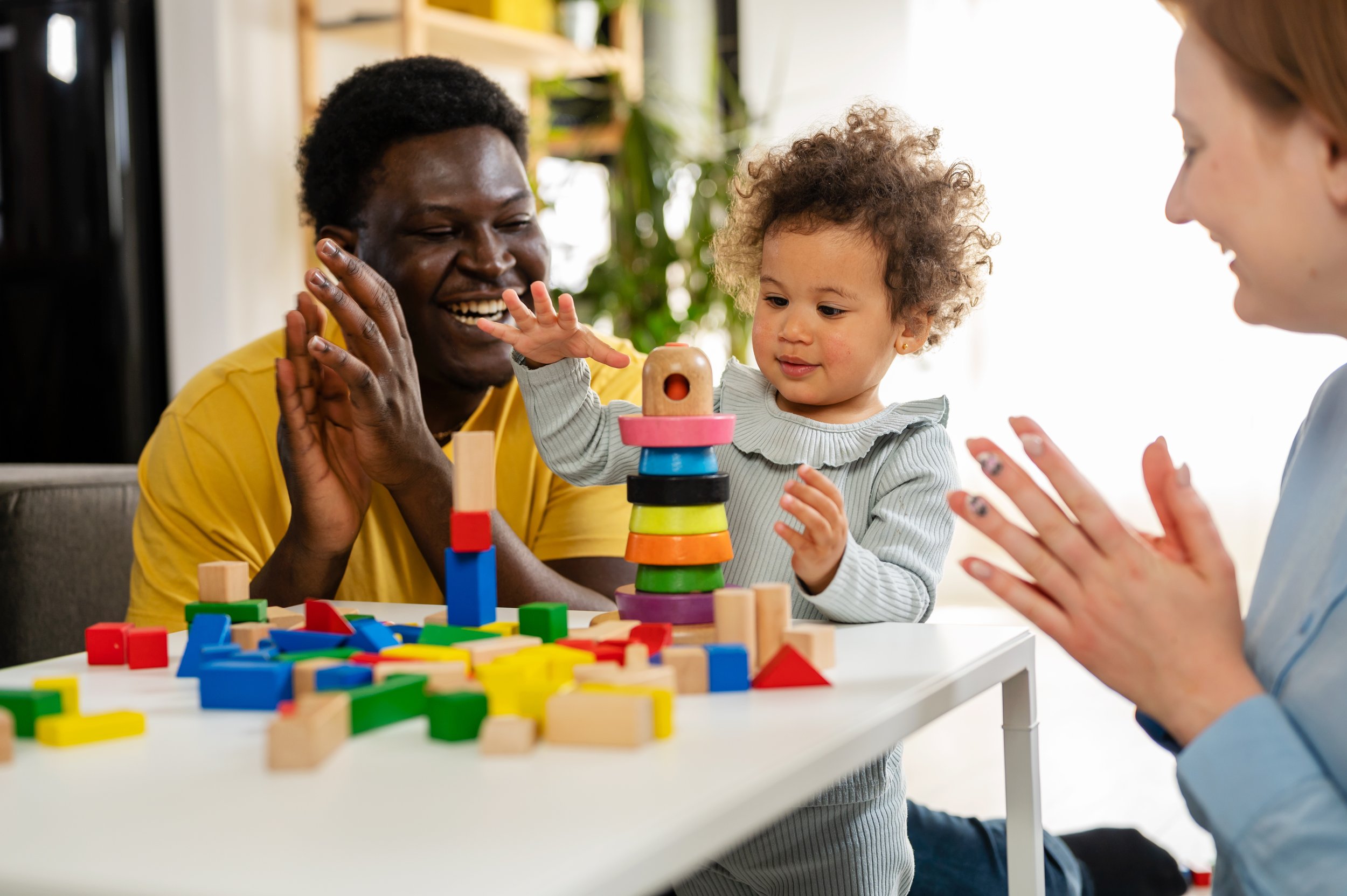
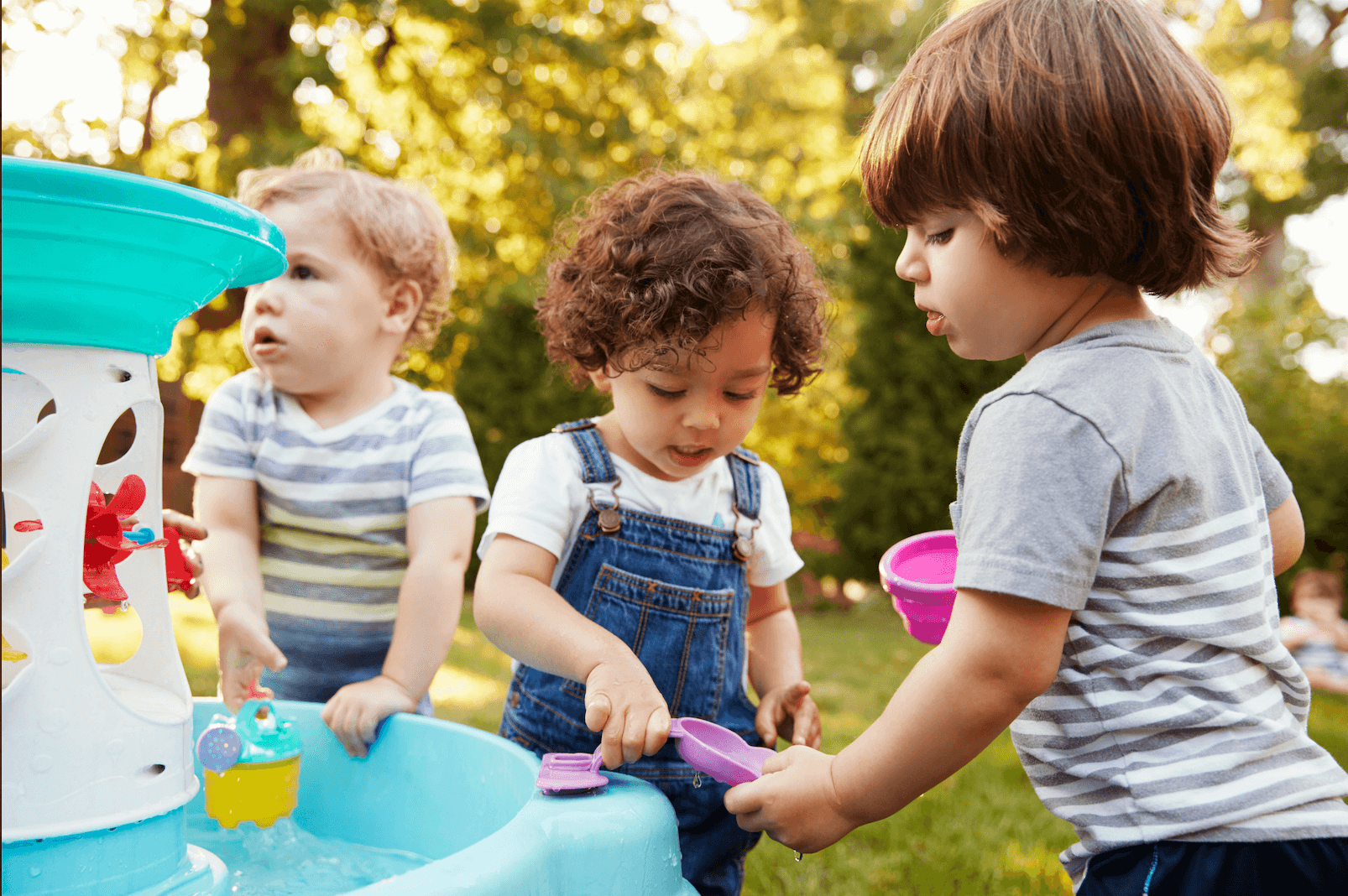
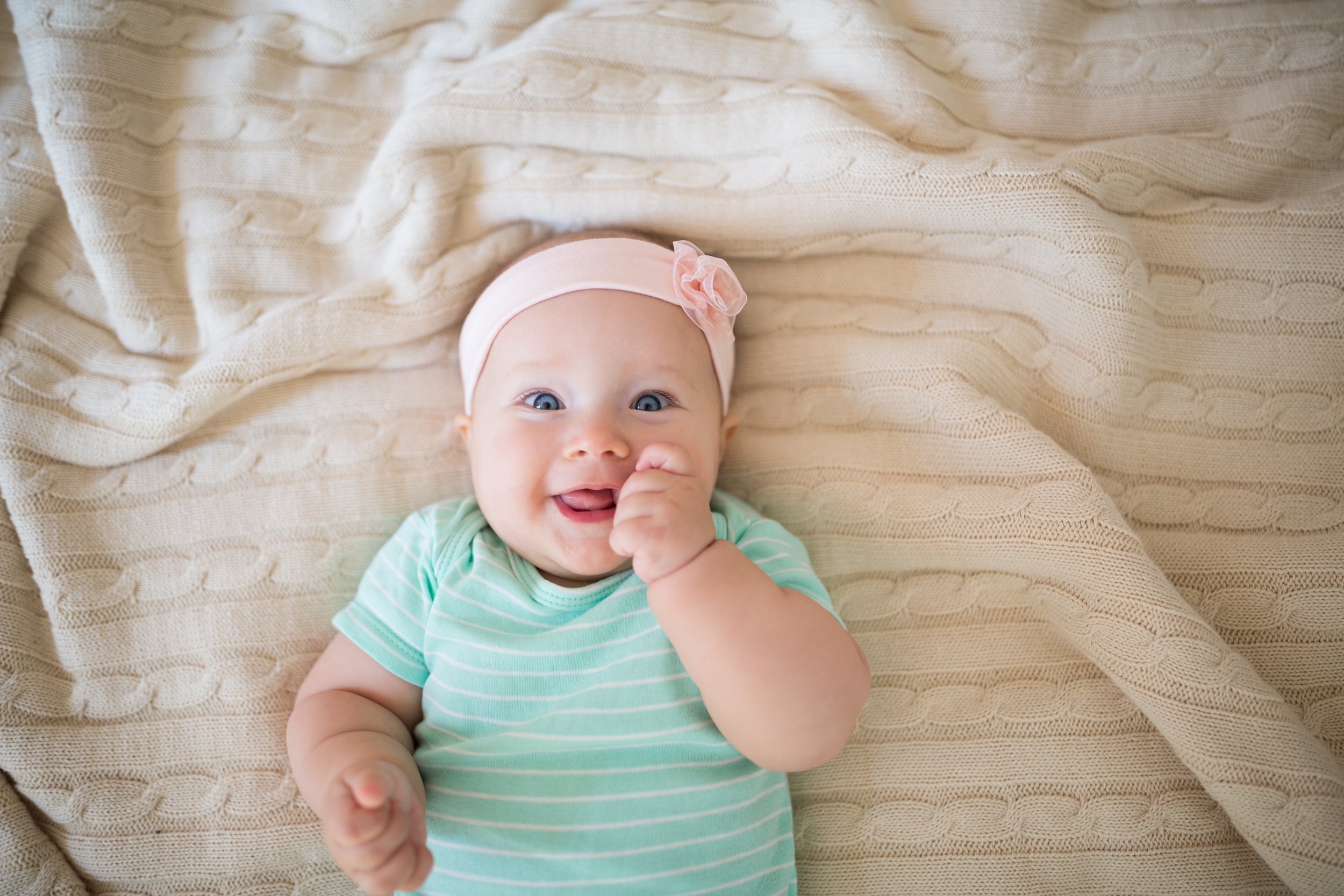
Explore language tips for potty training tailored to your child's communication stage. From toddlers who are just beginning to talk to children speaking in sentences, learn how to use gestures, sign language, storytelling, and consistency to support your potty training journey.